Breaking News


Popular News

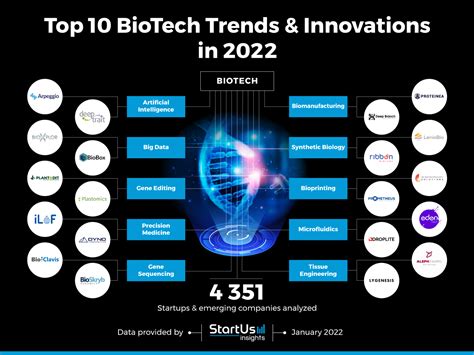
Stay updated on AI-Powered Diagnostics, Gene Editing Breakthroughs, Wearable Health Devices, and more in the latest blog post on medical advancements.The field of biotech and healthtech is advancing at a rapid pace, with new innovations and breakthroughs revolutionizing the way healthcare is delivered. From AI-powered diagnostics to regenerative medicine innovations, the top trends in biotech and healthtech are shaping the future of medicine and healthcare. In this blog post, we will explore the latest advancements in the industry, including personalized medicine, telemedicine advancements, gene editing breakthroughs, wearable health monitoring devices, and microbiome research advancements. These trends are not only improving the accuracy and efficiency of diagnostics and treatment but also empowering individuals to take control of their own health. Join us as we delve into the world of biotech and healthtech and learn about the cutting-edge technologies that are transforming the way we approach healthcare.
Contents
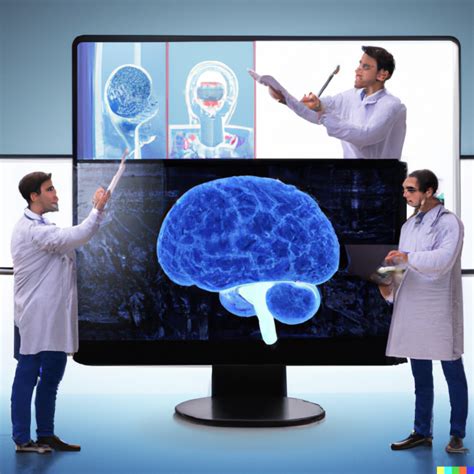
In recent years, there have been significant advancements in the use of artificial intelligence (AI) in the field of diagnostics. AI-powered diagnostics involve the use of algorithms and machine learning to analyze medical data and provide accurate diagnostic results. This technology has the potential to revolutionize the way medical conditions are identified and treated, leading to more personalized and effective healthcare.
One of the key benefits of AI-powered diagnostics is its ability to analyze large volumes of data at a much faster rate than a human could. This can lead to quicker and more accurate diagnoses, as well as the ability to identify patterns and trends that may not be immediately apparent to doctors. Additionally, AI can provide diagnostic support in remote or underserved areas where access to healthcare professionals may be limited.
AI-powered diagnostics are particularly promising in the detection and diagnosis of diseases such as cancer, where early detection is crucial for successful treatment. By using AI algorithms to analyze medical imaging, such as MRIs and CT scans, healthcare providers can identify potential areas of concern with greater accuracy and efficiency.
As AI technology continues to advance, we can expect to see even more developments in the use of AI-powered diagnostics in the coming years, ultimately leading to more precise and timely healthcare interventions for patients around the world.
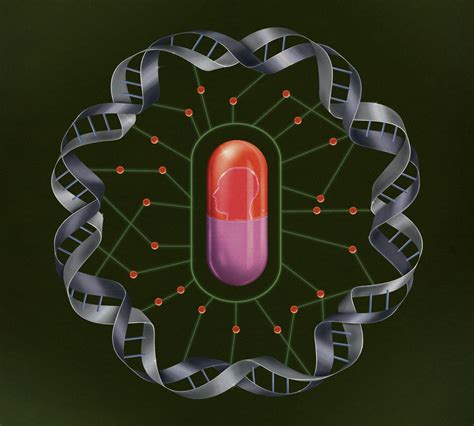
Personalized medicine, also known as precision medicine, is a field that focuses on customizing healthcare and medical treatments to individual patients. This approach takes into account each person’s unique genetic makeup, lifestyle, and environmental factors to tailor treatment plans and therapies. The goal of personalized medicine is to improve patient outcomes, minimize side effects, and optimize the overall effectiveness of medical interventions.
In recent years, advancements in genomic technologies have paved the way for personalized medicine to become a reality. Genetic testing and analysis now allow healthcare providers to identify specific mutations, variations, and biomarkers that can influence an individual’s risk of certain diseases, as well as their response to different medications. By leveraging this genetic information, physicians can prescribe personalized treatment regimens that are tailored to each patient’s genetic profile.
The rise of personalized medicine has also led to the development of targeted therapies, which are designed to pinpoint and attack specific molecular pathways or genetic mutations associated with certain diseases. This precision approach has shown promising results in the treatment of cancer, autoimmune disorders, and rare genetic diseases, offering new hope for patients who previously had limited treatment options.
As personalized medicine continues to evolve, the integration of big data analytics, artificial intelligence, and machine learning algorithms has the potential to further enhance the precision and accuracy of patient-specific treatment strategies. By analyzing vast amounts of clinical data and genetic information, these technologies can help identify patterns, predict disease risks, and optimize treatment outcomes for individuals, ushering in a new era of personalized healthcare.
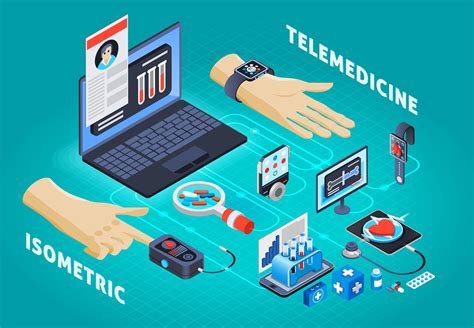
Telemedicine has witnessed significant advancements in recent years, revolutionizing the way healthcare is delivered. One of the key trends in telemedicine is the use of AI-powered diagnostics to remotely assess and diagnose patients. This has not only improved access to healthcare for individuals in remote or underserved areas, but also enhanced the efficiency and accuracy of medical assessments.
Another important advancement in telemedicine is the development of personalized medicine through virtual consultations and remote monitoring. Patients can now receive tailored treatment plans based on their individual genetic makeup and health history, without needing to physically visit a healthcare facility.
Furthermore, the integration of wearable health monitoring devices into telemedicine has enabled continuous and real-time health monitoring for patients with chronic conditions, allowing healthcare providers to proactively intervene and manage their care.
In addition, telemedicine has also played a crucial role in regenerative medicine innovations by facilitating remote follow-up care for patients undergoing regenerative treatments, reducing the burden of frequent in-person visits and enabling more efficient recovery.
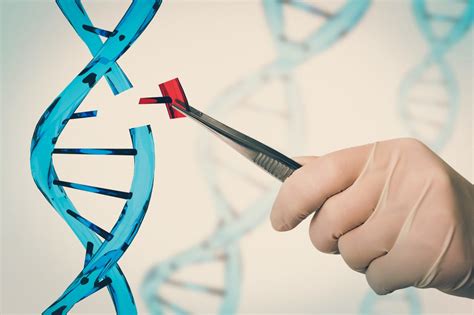
Gene Editing Breakthroughs
Gene Editing Breakthroughs
The field of gene editing has seen incredible advancements in recent years, with the development of breakthrough technologies like CRISPR-Cas9. This revolutionary tool allows scientists to precisely modify the DNA of living organisms, opening up new possibilities for treating genetic disorders and creating genetically modified organisms that could help address global challenges such as food security and environmental sustainability.
One of the most exciting potential applications of gene editing is in the field of medicine, where researchers are exploring the use of CRISPR to correct genetic mutations that cause hereditary diseases. This could lead to the development of personalized gene therapies that target the root causes of conditions like sickle cell anemia and muscular dystrophy, offering hope to patients who previously had few treatment options.
However, the use of gene editing in humans also raises ethical concerns, particularly when it comes to the potential for inheritable genetic modifications. As scientists continue to push the boundaries of what is possible with gene editing technologies, it will be critical to have robust ethical and regulatory frameworks in place to ensure that these powerful tools are used responsibly and for the greater good.
In addition to medical applications, gene editing breakthroughs are also driving innovation in agriculture and biotechnology. Researchers are exploring how CRISPR and other gene editing tools can be used to engineer crop plants with improved resistance to pests and diseases, as well as to produce higher yields and enhanced nutritional profiles. These advancements have the potential to help address global food security challenges and create more sustainable farming practices.
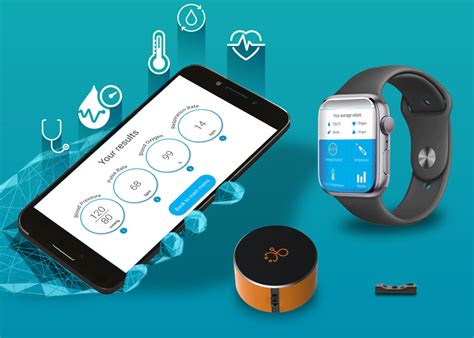
Wearable health monitoring devices have revolutionized the way we track and manage our health on a daily basis. These devices, such as fitness trackers, smartwatches, and health monitoring wearables, enable individuals to keep track of their physical activity, heart rate, sleep patterns, and more, all in real time. With the integration of AI-powered algorithms, these devices can provide personalized insights and recommendations for improving overall health and wellness.
One of the key advantages of wearable health monitoring devices is the continuous monitoring of vital signs and health metrics. This continuous data collection allows for early detection of potential health issues and the opportunity for proactive intervention. Whether it’s monitoring for irregular heart rhythms, tracking blood oxygen levels, or detecting signs of stress and fatigue, wearable health devices provide users with valuable information about their health status.
Moreover, wearable health monitoring devices can play a crucial role in remote patient monitoring and telemedicine. By enabling healthcare providers to remotely access patients’ health data, these devices facilitate proactive care and intervention, particularly for individuals with chronic conditions or those recovering from surgery or illness. The use of wearable health devices can also help drive down healthcare costs by reducing the need for frequent in-person visits and hospitalizations.
In addition to individual health monitoring, wearable devices also contribute to population health research and analytics. Aggregated and anonymized data from these devices can provide valuable insights into trends and patterns in physical activity, sleep quality, and overall wellness within communities. This data can then inform public health initiatives, urban planning, and healthcare resource allocation, ultimately contributing to the improvement of public health on a broader scale.
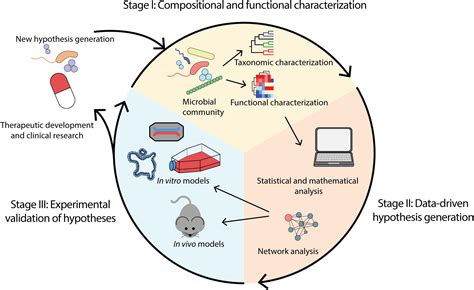
The human microbiome, consisting of trillions of microorganisms residing in our bodies, has been a rapidly growing area of research in the biotech and health tech industry. Microbiome research advancements have revealed the intricate connections between our gut microbiota and various aspects of our health, from digestion to immunity to mental well-being. One of the most groundbreaking discoveries in microbiome research is the potential for personalized medicine and treatments tailored to an individual’s unique microbiome profile. This has opened up new possibilities for targeted therapies and disease prevention strategies that take into account the diversity of microbiota composition among different individuals. Additionally, the development of AI-powered diagnostics has enabled researchers to analyze large-scale microbiome data with unprecedented speed and accuracy, leading to deeper insights into the role of the microbiome in human health.
Furthermore, the emergence of gene editing breakthroughs has provided a powerful tool for manipulating the microbiome to promote health and treat diseases. This technology has the potential to target specific microbial communities within the microbiome, offering new avenues for the development of novel probiotics and therapeutic interventions. Additionally, the integration of wearable health monitoring devices into microbiome research has allowed for real-time data collection and analysis, providing researchers with a better understanding of how external factors such as diet, stress, and environmental exposures impact the microbiome.
| Keyword | Definition |
|---|---|
| Microbiome Research Advancements | groundbreaking discoveries in microbiome research and the potential for personalized medicine and treatments tailored to an individual’s unique microbiome profile |
| gene editing breakthroughs | provided a powerful tool for manipulating the microbiome to promote health and treat diseases |
| AI-powered diagnostics | enabled researchers to analyze large-scale microbiome data with unprecedented speed and accuracy, leading to deeper insights into the role of the microbiome in human health. |
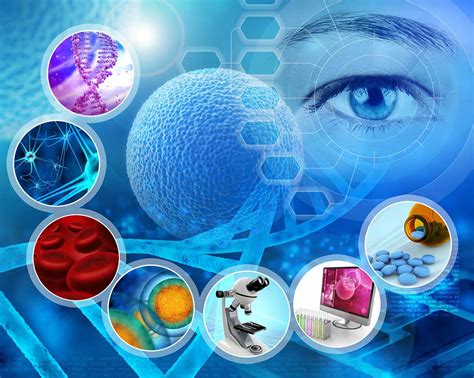
Regenerative Medicine Innovations
Regenerative medicine is a rapidly evolving field that aims to restore the structure and function of damaged tissues and organs. This innovative approach involves harnessing the body’s own regenerative capabilities to promote healing and repair. In recent years, there have been several exciting developments in regenerative medicine that hold great promise for the treatment of a wide range of medical conditions.
One of the most groundbreaking advancements in regenerative medicine is the use of stem cells for tissue repair and regeneration. Stem cells have the unique ability to develop into different types of cells in the body, and they can also stimulate the body’s own healing processes. This has enormous potential for treating injuries, degenerative diseases, and even organ damage. Researchers are also exploring the use of stem cells in 3D bioprinting, which allows for the creation of tissues and organs that can be used for transplantation.
Another exciting area of innovation in regenerative medicine is the development of tissue engineering and biomaterials. Scientists are creating new materials that can mimic the properties of natural tissues, making them ideal for repairing and replacing damaged organs. This has led to significant advancements in the field of organ transplantation, as well as the development of artificial organs that can support and sustain the body’s functions.
Furthermore, advancements in gene therapy and gene editing technologies have opened up new possibilities for regenerative medicine. Researchers are now able to modify and repair genetic defects that contribute to various diseases, offering hope for patients with genetic disorders and degenerative conditions. These breakthroughs have the potential to revolutionize the treatment of genetic diseases and pave the way for personalized regenerative medicine.
| Benefits of Regenerative Medicine Innovations |
|---|
| Enhanced healing and recovery |
| Reduced need for organ transplantation |
| Treatment of genetic disorders |
| Potential for personalized medicine |

What are some of the top trends in biotech innovation?
Some of the top trends in biotech innovation include gene editing, personalized medicine, and synthetic biology.
How is AI being utilized in HealthTech innovation?
AI is being used in HealthTech innovation for tasks such as medical imaging analysis, drug discovery, and personalized treatment recommendations.
What impact is CRISPR technology having on biotech and health?
CRISPR technology is revolutionizing biotech and health by enabling precise gene editing, potential cures for genetic diseases, and new approaches to cancer treatment.
What are some examples of breakthroughs in regenerative medicine?
Breakthroughs in regenerative medicine include advancements in stem cell therapy for organ regeneration, 3D bioprinting of tissues and organs, and tissue engineering for improved wound healing.
How are wearable devices and digital health technologies shaping the future of healthcare?
Wearable devices and digital health technologies are enabling remote patient monitoring, personalized health tracking, and early detection of health issues, leading to more proactive and individualized healthcare.
What role does blockchain technology play in biotech and health innovation?
Blockchain technology is being used in biotech and health innovation for secure and transparent data management, supply chain traceability, and to enable new models of healthcare data sharing and privacy protection.
How are advancements in telemedicine and virtual care impacting the healthcare industry?
Advancements in telemedicine and virtual care are expanding access to healthcare services, improving patient convenience, and driving the shift towards more decentralized and patient-centric care delivery models.